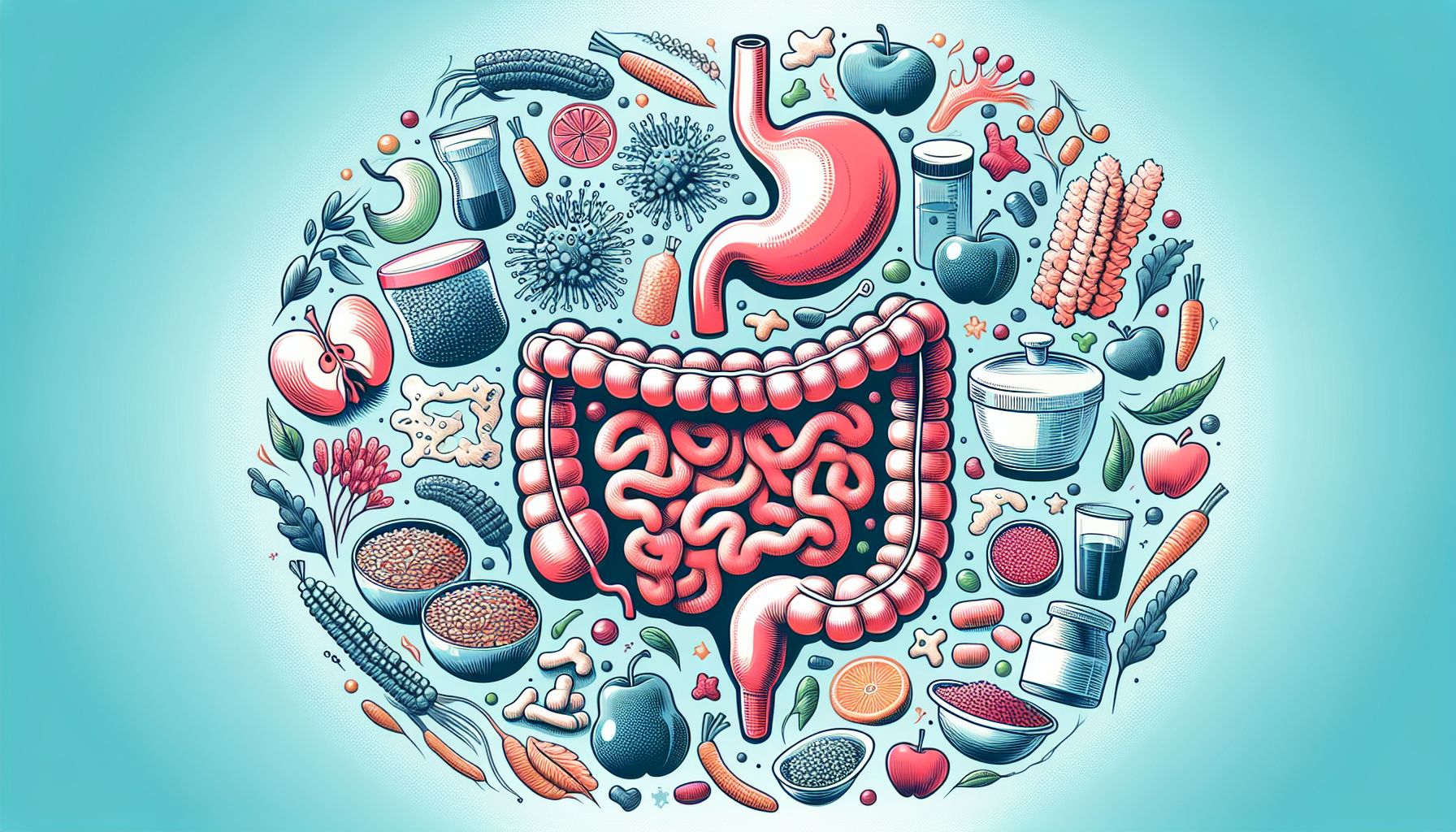
## Introduction to Gastrointestinal Health
The gastrointestinal (GI) system plays a crucial role in the human body, responsible for digesting food, absorbing nutrients, and eliminating waste. Understanding the intricacies of this system is essential for maintaining overall health and well-being. In this article, we delve into the definition, function, and importance of gastrointestinal health, along with practical advice and insights from medical professionals.
### What is Gastrointestinal Health?
Gastrointestinal health refers to the optimal functioning of the digestive tract, which extends from the mouth to the anus. This system includes key organs such as the esophagus, stomach, small intestine, large intestine, liver, pancreas, and gallbladder. Each component has a specific role in breaking down food, absorbing nutrients, and expelling waste, ensuring the body receives the nutrients it needs to function efficiently.
### How the Gastrointestinal System Works
1. Ingestion and Digestion: The process begins in the mouth, where food is chewed and mixed with saliva. It then travels down the esophagus to the stomach, where gastric juices further break down the food into a semi-liquid form known as chyme.
2. Nutrient Absorption: The chyme moves into the small intestine, where the majority of nutrient absorption occurs. The pancreas and liver secrete enzymes and bile to aid in the digestion of fats, proteins, and carbohydrates.
3. Waste Excretion: The remaining indigestible parts of food pass into the large intestine, where water is absorbed, and the waste is eventually expelled from the body.
### Common Gastrointestinal Disorders
Maintaining gastrointestinal health is crucial as it can be affected by various disorders, including:
– Gastroesophageal Reflux Disease (GERD): A chronic condition where stomach acid flows back into the esophagus, causing heartburn and irritation.
– Irritable Bowel Syndrome (IBS): A disorder characterized by abdominal pain, bloating, and altered bowel habits.
– Inflammatory Bowel Disease (IBD): Includes conditions like Crohn’s disease and ulcerative colitis, which cause inflammation of the GI tract.
### Recommendations for Maintaining Gastrointestinal Health
1. Balanced Diet: Incorporate fiber-rich foods, lean proteins, and healthy fats. Avoid excessive intake of processed foods, alcohol, and caffeine.
2. Hydration: Drink plenty of water to facilitate digestion and prevent constipation.
3. Regular Exercise: Physical activity promotes regular bowel movements and can help manage stress, which is often linked to GI issues.
4. Probiotics: Consider incorporating probiotics into your diet to maintain a healthy balance of gut bacteria.
### Dosages and Recommendations
For specific conditions, certain medications or supplements may be recommended:
– Antacids: For relief from heartburn and indigestion. Follow the dosage instructions on the packaging or prescribed by a healthcare provider.
– Fiber Supplements: For constipation, start with a low dose and gradually increase to avoid bloating.
– Probiotics: Dosage varies depending on the strain and preparation. Consult a healthcare provider for advice tailored to your needs.
### Possible Side Effects
While maintaining gastrointestinal health, be aware of potential side effects from medications or supplements:
– Antacids: Overuse can lead to diarrhea or constipation.
– Fiber Supplements: May cause bloating or gas if introduced too quickly.
– Probiotics: Generally safe, but some people may experience digestive discomfort.
### Expert Insights
Dr. Jane Smith, a gastroenterologist, emphasizes the importance of early intervention: “Ignoring symptoms like persistent heartburn or changes in bowel habits can lead to more severe complications. It’s crucial to consult with a healthcare provider to address issues early on.”
Pharmacist John Doe advises, “When considering supplements, choose reputable brands and consult with a healthcare professional to ensure they’re appropriate for your condition.”
### Conclusion
Gastrointestinal health is fundamental to overall well-being, influencing everything from nutrient absorption to immune function. By understanding how the system works and taking proactive steps to maintain it, you can support your body’s health and prevent potential disorders. For more information on supplements and medications, visit our recommended site at our online pharmacy.
### References
– National Institute of Diabetes and Digestive and Kidney Diseases (NIDDK). “Digestive Diseases.”
– Mayo Clinic. “Gastrointestinal Diseases.”
– Academy of Nutrition and Dietetics. “Fiber and Digestive Health.”


 Indian Rupee
Indian Rupee